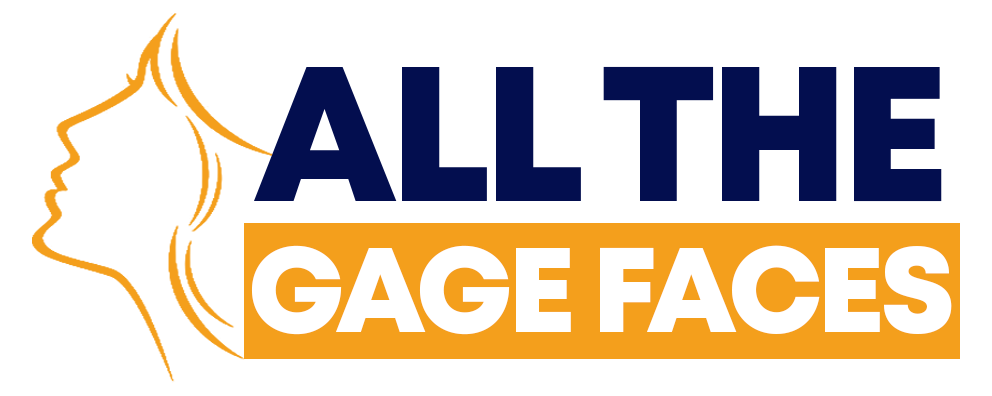In the dynamic world of sports, the importance of data and analytics cannot be overstated. Teams, coaches, and enthusiasts alike are constantly seeking innovative ways to gain a competitive edge. One such breakthrough in the realm of sports analytics is the Sportline Score, a cutting-edge tool that is reshaping the way we understand and analyze athletic performance. In this article, we will delve into the intricacies of Sportline Score, exploring its origins, functionalities, and the impact it has had on various sports.
Understanding Sportline Score:
Sportline Score is a comprehensive sports analytics platform that goes beyond traditional statistics. Developed with a focus on providing in-depth insights into player and team performance, this tool leverages advanced algorithms and machine learning to process vast amounts of data. It takes into account various factors such as player movements, game situations, and historical performance to generate a unique score that reflects the overall effectiveness of an athlete or team.
Origin and Evolution:
The genesis of Sportline Score can be traced back to the growing demand for more sophisticated analytics in the sports industry. As teams began to recognize the limitations of basic statistics, there was a need for a tool that could offer a more nuanced understanding of the game. The developers of Sportline Score seized this opportunity, combining their expertise in data science and sports to create a groundbreaking solution.
The platform has evolved over time, incorporating feedback from coaches, players, and analysts to refine its algorithms and enhance its predictive capabilities. Today, Sportline Score stands as a testament to the constant evolution of sports analytics, adapting to the ever-changing landscape of competitive athletics.
Key Features:
- Dynamic Scoring System: Sportline Score employs a dynamic scoring system that takes into account the fluid nature of sports. Unlike static statistics, the score adjusts in real-time based on the unfolding events of a game. This provides a more accurate reflection of an athlete’s performance, capturing the ebb and flow of their contributions.
- Position-Specific Metrics: Recognizing that different positions in a sport require distinct skill sets, Sportline Score provides position-specific metrics. Whether it’s a point guard in basketball or a goalkeeper in soccer, the platform evaluates players based on the unique demands of their roles, offering a more tailored analysis.
- Historical Performance Trends: Sportline Score doesn’t just focus on the present; it considers the past as well. By analyzing historical performance trends, the platform can identify patterns and tendencies, aiding coaches in strategic decision-making and opponents in devising counter-strategies.
- Team Cohesion Analysis: Beyond individual player assessments, Sportline Score also evaluates team cohesion. It examines how well players work together, identifying synergies and areas for improvement. This holistic approach contributes to a more comprehensive understanding of overall team dynamics.
Impact on Sports:
Sportline Score has made a significant impact on various sports, influencing coaching strategies, player recruitment, and fan engagement. Let’s explore its effects in a few key areas:
- Coaching Strategies: Coaches now have access to a wealth of data that goes beyond conventional statistics. Sportline Score allows them to fine-tune their strategies based on real-time insights, leading to more adaptive and effective coaching approaches.
- Player Recruitment: In the era of analytics-driven decision-making, player recruitment has become more precise. Teams can identify potential talents by evaluating their Sportline Scores, ensuring a better fit with the team’s playing style and objectives.
- Fan Engagement: Sportline Score has enhanced fan engagement by providing a deeper understanding of player and team performances. Fans can now appreciate the nuances of the game beyond the surface, fostering a more informed and passionate fan base.
Challenges and Criticisms:
While Sportline Score has garnered widespread acclaim, it is not without its challenges and criticisms. Some argue that the reliance on algorithms may oversimplify the complexity of sports, reducing the human element. Others express concerns about the potential for data misuse or biased algorithms, emphasizing the need for transparency and ethical considerations in sports analytics.
Future Prospects:
As technology continues to advance, the future of Sportline Score appears promising. The integration of real-time data from wearable devices, enhanced artificial intelligence, and more sophisticated algorithms could further elevate the platform’s capabilities. Additionally, collaborations with sports leagues and organizations may lead to standardized metrics, fostering a more universal approach to sports analytics.
Conclusion:
Sportline Score has emerged as a game-changer in the world of sports analytics, redefining how we perceive and analyze athletic performance. Its dynamic scoring system, position-specific metrics, and emphasis on team cohesion provide a holistic view of sports that goes beyond traditional statistics. As the platform continues to evolve, it is poised to shape the future of sports analytics, influencing coaching strategies, player recruitment, and the overall fan experience. While challenges and criticisms persist, the potential for Sportline Score to contribute to a more informed, competitive, and captivating sports landscape is undeniably exciting.
-
What is Sportline Score?
Sportline Score is a comprehensive sports analytics platform designed to provide in-depth insights into player and team performance. It utilizes advanced algorithms and machine learning to process vast amounts of data, generating a dynamic score that reflects the overall effectiveness of an athlete or team.
-
How does Sportline Score work?
Sportline Score works by analyzing various factors such as player movements, game situations, and historical performance. It employs a dynamic scoring system that adjusts in real-time based on the unfolding events of a game. The platform also provides position-specific metrics and evaluates team cohesion to offer a holistic assessment.
-
What sets Sportline Score apart from traditional statistics?
Unlike traditional statistics that offer static and limited insights, Sportline Score provides a more nuanced and dynamic analysis. It goes beyond basic metrics, considering the fluid nature of sports and adjusting scores in real-time. The platform also offers position-specific metrics, recognizing the unique demands of different positions in a sport.
-
How is the Sportline Score calculated for individual players?
The Sportline Score for individual players is calculated based on a combination of factors, including their movements on the field, contributions to game situations, historical performance trends, and position-specific metrics. The dynamic scoring system ensures that the score adapts to the changing dynamics of a game.
-
Does Sportline Score only focus on individual players, or does it analyze team performance as well?
Sportline Score provides a comprehensive analysis that includes both individual player assessments and team cohesion analysis. It evaluates how well players work together, identifying synergies and areas for improvement. This holistic approach contributes to a more comprehensive understanding of overall team dynamics.
-
How can Sportline Score benefit coaches and teams?
Sportline Score offers coaches and teams valuable insights for strategic decision-making. Coaches can fine-tune their strategies based on real-time data, adapt to changing game situations, and enhance overall team performance. The platform’s analysis can influence game plans, player rotations, and in-game adjustments.
-
Is Sportline Score limited to specific sports, or does it cover a wide range of athletic activities?
Sportline Score is designed to be versatile and adaptable across various sports. While the specific metrics may vary depending on the sport, the underlying principles of dynamic scoring, position-specific analysis, and team cohesion evaluation can be applied to a wide range of athletic activities.
-
How can players and teams access Sportline Score?
Access to Sportline Score may vary depending on partnerships and agreements with sports leagues, teams, or organizations. In some cases, it may be accessible through official team platforms, league websites, or as part of a broader sports analytics service.
-
What are the potential future developments for Sportline Score?
The future of Sportline Score holds the potential for further advancements, including the integration of real-time data from wearable devices, enhanced artificial intelligence, and more sophisticated algorithms. Collaborations with sports leagues and organizations may lead to standardized metrics, contributing to a more universal approach to sports analytics.
-
Are there any ethical considerations or concerns with the use of Sportline Score?
Like any sports analytics tool, there are ethical considerations with the use of Sportline Score. Concerns may include the potential for data misuse, bias in algorithms, and the oversimplification of the complexity of sports. Transparency, ethical guidelines, and ongoing discussions within the sports community are essential in addressing these concerns.

